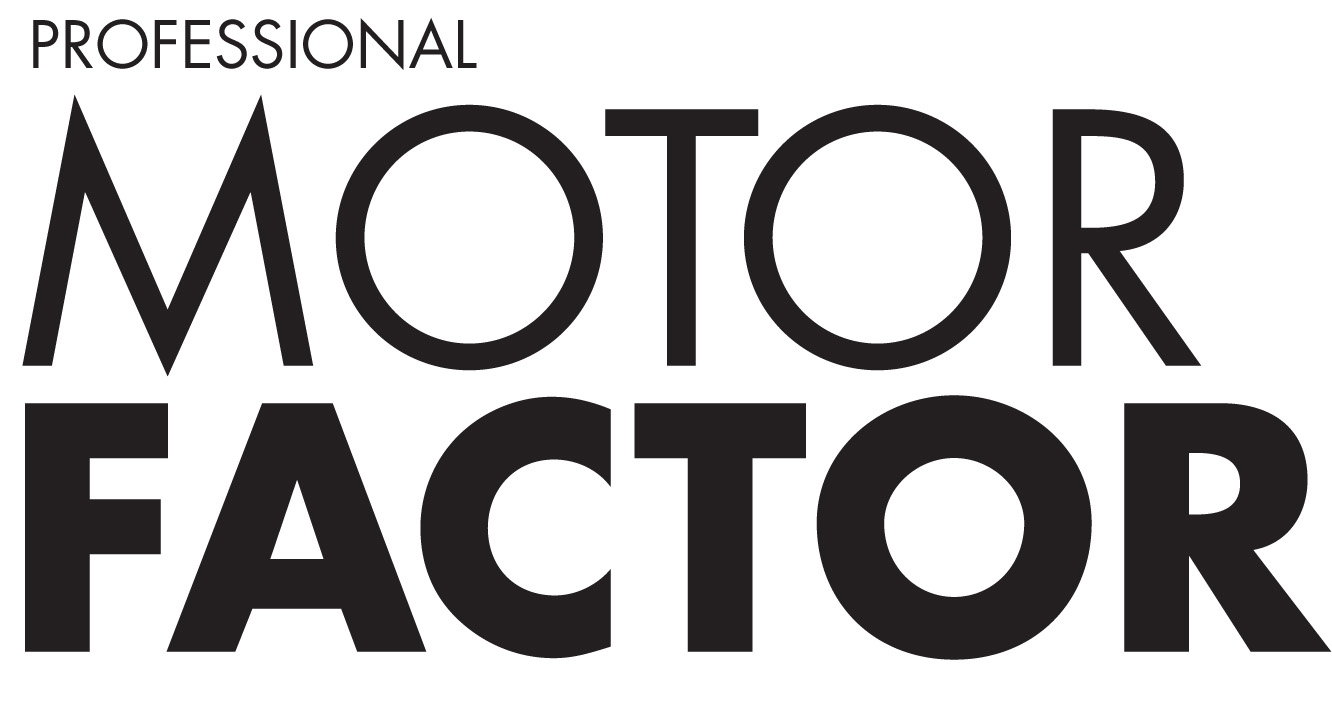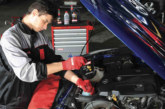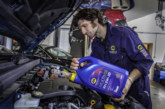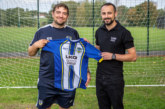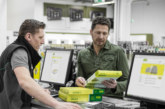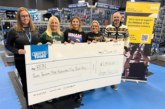PMF visits Autosupplies Group
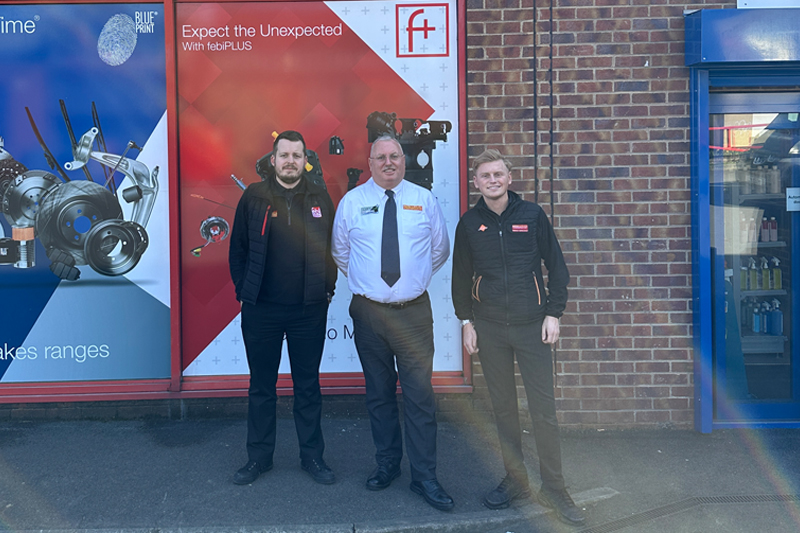
Our editor, Tom Henman, recently took a trip down memory lane by visiting David Clarke, the owner of the Autosupplies Group. He first encountered the UAN motor factor 12 years ago, so what’s changed?
The Professional Motor Factor LinkedIn page is followed by more than 2,000 individuals, and most posts receive decent levels of engagement, but, every so often, a post takes off. That is precisely what happened when PMF shared a photo of David Clarke and his two sons, Tom and Ben, posing outside of the recently renovated Leisureways of Rotherham branch, part of the Autosupplies empire.
The image represents legacy, hard graft and the future of a family-run business that stands tall in an increasingly busy arena of conglomerates. Behind the image is a story spanning 45 years, one that begins with paint pots and is currently standing as a £22 million turnover business stretching across South Yorkshire, Derbyshire and Nottinghamshire.
From paint room to board room
David began his working life in the trade at just 16, mixing paint in what he describes as a “room about this size”, gesturing to his office – one that is bordered by silverware. Trophies that even the most successful, famous Yorkshire sports teams would be proud of.
In 1990, he opened Autosupplies Chesterfield before acquiring, revamping and changing the fortunes of Butlers Automotive in Barnsley and Leisureways of Rotherham in 2017 and 2019 respectively.
Those two branches are managed by Tom and Ben, along with the support at Leisureways from Tom’s partner, Georgia, and David’s daughter, Ebony, and while it would be easy to assume that they’ve simply slipped into the roles, under the supervision and guidance of Dad, they’ve endured a tough path to get to where they are, clocking up the hours and learning quickly how to manage existing staff and recruit personnel that fit into the Autosupplies culture.
The Clarke culture
Curious as to the ‘Autosupplies way’, David gave PMF a glimpse of that within the first 10 minutes of our conversation: “I’ve never had a day off in 45 years (apart from holidays)! It was the same through my school life, I never took time off and always attended even when feeling unwell. I had flu before I went to Cambodia recently, and I still worked through it. It’s ingrained in our family. My dad was a railway man – proper working class. He said to me: ‘David, I’ve done 38 years without a day off sick – you’ll never beat that.’ Well, I have. But unfortunately, he’s not around to see it!”
That work ethic and refusal to be beaten are two traits that Tom and Ben have absorbed: “Tom had a really tough first year,” David conceded, “as we had staff that were used to working for the previous regime.
“I remember when I bought Leisureways, and I called a staff meeting. Somebody asked if their job was safe, and I told them that if they come to work, do a good job, they couldn’t work for a better company. Alternatively, if they didn’t want to come to work and create issues, then we suggest they find a new occupation.
“We found a couple of people thieving, another taking regular trips to bookmakers, two taking two hours for lunch. They were getting away with it because the previous owners weren’t interested. We needed to bring in the right profile of person – and quickly – to replace those individuals. Things are much better now.”
Ben, meanwhile, practically lived at Butlers for 18 months. It wasn’t just a facelift; the transformation was dramatic, with skips of junk removed, walls repainted, branding installed, and stock systems overhauled.
David added: “Ben was lucky to have great staff in place already.” Both businesses are now thriving, with Butlers and Leisureways recording tidy profits and on the way to another successful year. After putting in the graft – staying up until 3am some days to get the job done – the rewards are now being seen.
David is a proud father: “I’m not just saying this because they’re my lads, but they’ve done fantastically well. I’ve left them a lot of the time to do it themselves, to see how they can overcome challenges and difficulties, because they can’t keep tapping into my knowledge (laughing). Whether they think I leave them to it is a different matter!”
The two lads simply smiled as they tucked back into their lunch. Digging a bit further on this point, I was curious to know if work went home or if they were able to leave professional conversation to within the four walls of the branches.
A pensive David replied: “For me, it’s an obsession – it always has been, and I’ve never seen it as a job. It’s something I love. Sometimes I lose track of time, and I am guilty of wanting everyone to be like me, but they’re not.
“Do I expect Tom and Ben to work the same hours as me? I would have to say ‘no’ because I’m on my third marriage. I want my two boys to work hard and make a success of their life – but maybe not to the extent that I’ve sacrificed everything to get where I am today.”
Letting go hasn’t always been easy, no matter how hard David tries: “I still want to step in and fix things, but I know I have to pick and choose the times to do that.”
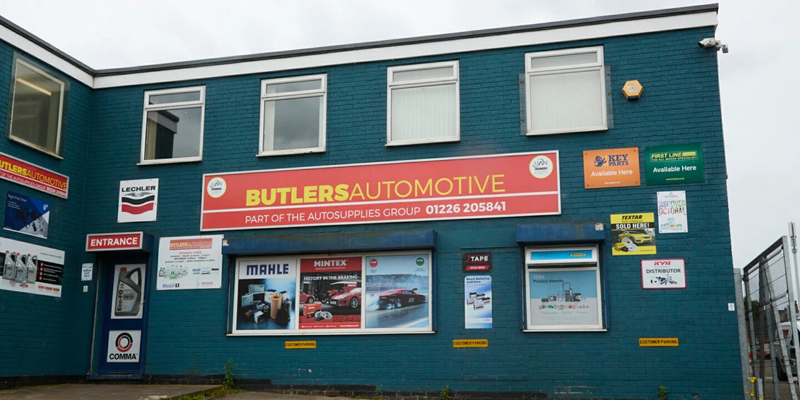
Motivation and nurturing
While Butlers and Leisureways are part of the Autosupplies family, Chesterfield will always be his first love: “I wanted to have the biggest single motor factor in the country. That was the goal. And I achieved it. But I’m not resting on that. You’ve got to keep setting goals. It keeps you motivated.”
On the subject of motivation, David is reflective, practical – and a little frustrated. Echoing many a concerns about attracting young people to the trade, David is particularly worried about it on the factor side, not just from a workshop perspective:
“We’re interviewing for two telesales roles right now – in Rotherham and Barnsley – but the right people just aren’t coming into the trade.”
Pressed into why that might be: “Money, mostly,” he said bluntly. “People can earn more working on computers. It’s cleaner, trendier. When I first started, everyone wanted to find a trade; now, they want to be IT experts. It’s not glamorous enough.”
Once the ideal candidate is found, the bigger task, arguably, is keeping them: “We try to bring people in at ground level and train them up, create a positive culture and reward hard work. It’s hard, but that’s the only way.”
Autosupplies has tried different approaches – colleges, schools, placements – but doesn’t believe colleges and schools are supportive enough. Apprenticeships have long been seen as a pathway in, but David’s not convinced by that route:
“Chesterfield College used to have a paint department. They’d call me if they had any good students – that’s how we got to know Jade and Ellie – now one is a paint supervisor. But that course has now been shut down. We’re now working with Barnsley College, and we try to take on young people from a local school for work placements.”
On apprenticeships, David said: “Both of my lads came through apprenticeships, but Ben dropped out. He was doing the same job as someone else but getting paid a lot less, which was not fair.
“While I’ve told my kids that money isn’t everything and they should never chase the cash – find a job you love, work hard and the rewards will follow – there needs to be a middle ground. If employers can show a clear future, something to aim for then that’s a platform to build from. Unfortunately, we (the industry) don’t always show that career ladder.”
Competiton: Don’t worry about them, make them worry about you.
Competition in the motor factor space has intensified — names like GSF and Euro Car Parts have reshaped the landscape. But David’s stance is firm: “Don’t worry about the competition. Make them worry about you.”
He continued: “When I started, every street had a motor spares shop. Most of the poor ones have gone. What’s left are the best of the best. People like us.”
Autosupplies has weathered recessions, pandemics and aggressive competitors. The key? Focus on the business, not the noise: “You can spend two hours worrying about what your competitor is doing or two hours improving your own business. I choose the latter.”
EVs and Yorkshire?
There’s been a lot of noise around EVs over the last decade – and it’s only getting louder. According to the Society of Motor Manufacturers and Traders, the UK saw a record number of EV sales last year. EV registrations accounted for almost one in five new car registrations in the UK, with 382,000 electric models sold.
But according to David, that buzz doesn’t reflect the reality on the ground, at least not in the areas Autosupplies Group motor factors serve:
“We keep hearing EV is the next big thing, but from what we’re seeing, it’s not happening – not yet anyway.”
David recalls being asked years ago to write an article about the shift toward EVs: “Someone said to me: ‘EV is the next big thing’. And I told him it isn’t – not for us anyway. We’ve got to live for today, tomorrow and the day after that. If we don’t get the next few years right, we won’t be around in 10.”
Currently, across its customer base, David estimates there are only three workshops equipped to handle EVs: “And even those aren’t busy with them,” he claimed. “It’s the big cities, like London, Birmingham and Manchester, where you might see more activity. But around here? No.”
The demand – or lack of it – speaks volumes: “A supplier tried to sell me EV charging cables,” David says with a shake of the head. “He spent half an hour on it. I told him he was wasting his time. No one’s asking for them. We’re not getting requests for EV parts. If I were missing sales, I’d know.”
Instead, the business remains focused on vehicles that are coming through the doors – traditional petrol and diesel cars, especially as consumers hold on to vehicles longer during this economic squeeze:
“Let’s be real,” David said. “EVs are expensive. The range still isn’t where it needs to be. And people are tightening their belts. In this mini recession, people aren’t rushing to buy electric – they’re repairing what they’ve already got.”
Finishing on a high?
Last year was Autosupplies Group’s best year on record – and 2025 looks to be even better – so why is business only getting better for this UAN member?
“We try to improve every day without really stopping to think about it. If we see something we want to change, we do it.”
From adding new product lines daily, to refining van runs and streamlining stock flow – it’s a constant process of evolution: “Last week alone, we brought on over 20 new customers,” David reported. “And when I ask them why they use us, they nearly always say the same thing: ‘You’ve got it in, and you get it here quick. And that’s it.’”
So, is it just service that sets Autosupplies apart? “It’s a mix,” believes David. “Service, availability and price. Some customers want one more than the others, but that’s usually what it comes down to. Add in product knowledge and a bit of old-school customer care, and that’s what keeps people coming back.”
That customer loyalty often spans generations: “There are garages still dealing with us now that I first supplied 40 years ago,” David smiles. “Sometimes it’s the sons or even grandsons of the people I started out with. They’ll say: ‘You used to supply my dad… or even my granddad.’”
It’s a full-circle moment: the Clarke family growing a business that’s now supplying third-generation customers, many of whom first met David when he was a teenage paint mixer. The irony isn’t lost on him either: “People think we’re a mechanical factor. But this all started with paint. Just paint. In a room about the size of this one.”
That early experience — hands-on, small-scale and hard-working — laid the foundation for everything that followed. The commitment to service. The focus on getting things right. The relentless pursuit of improvement, even if it doesn’t always get noticed in the moment.
David concluded: “People see the growth now — the turnover, the profit, the new branches — but they don’t always see the layers of graft underneath it.”

